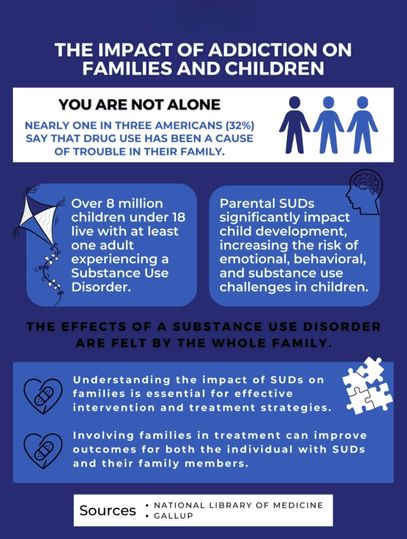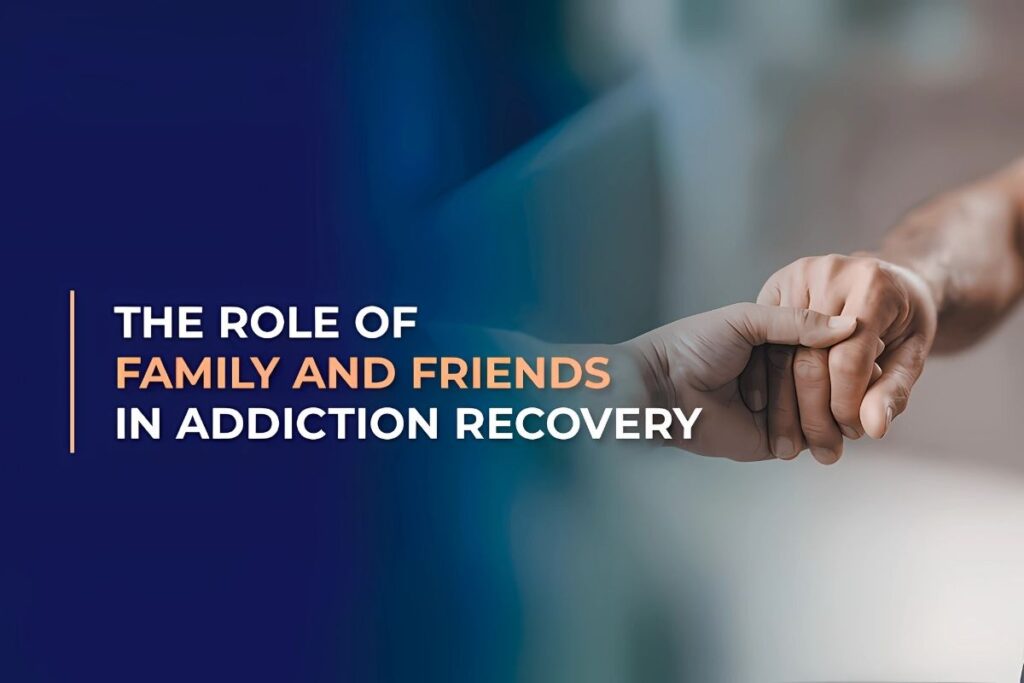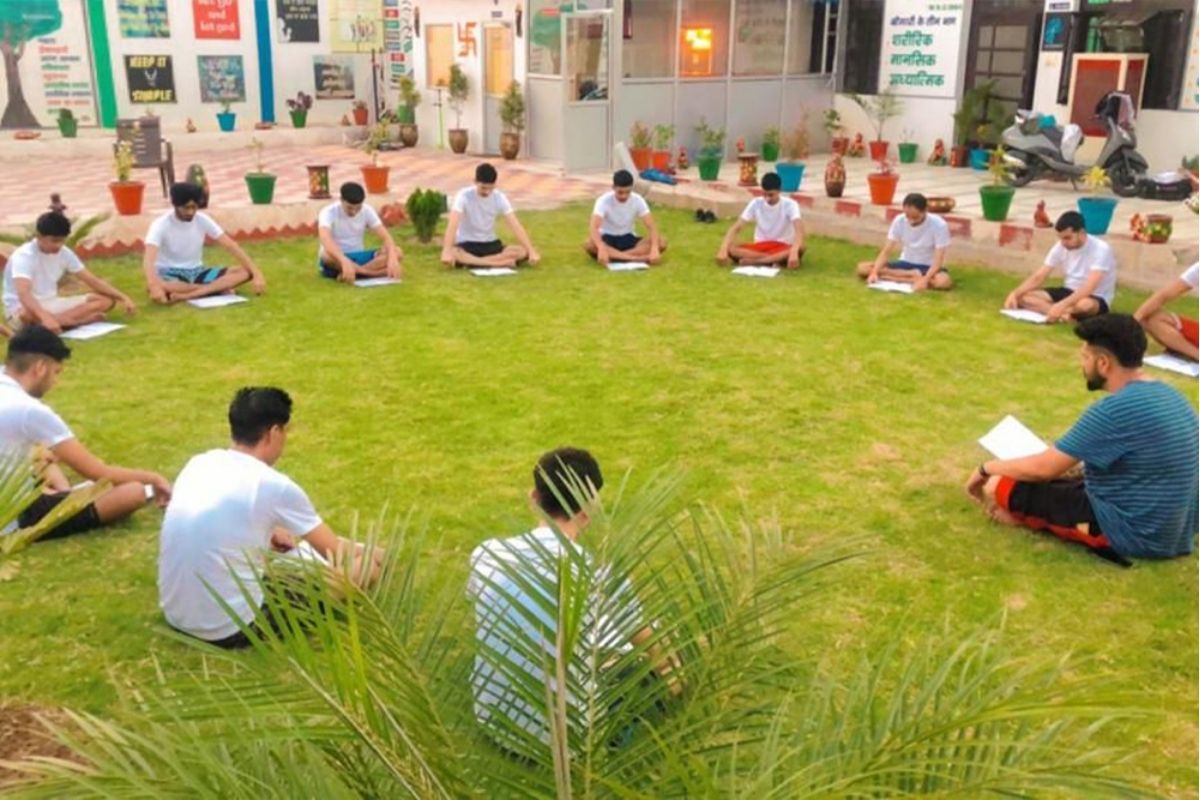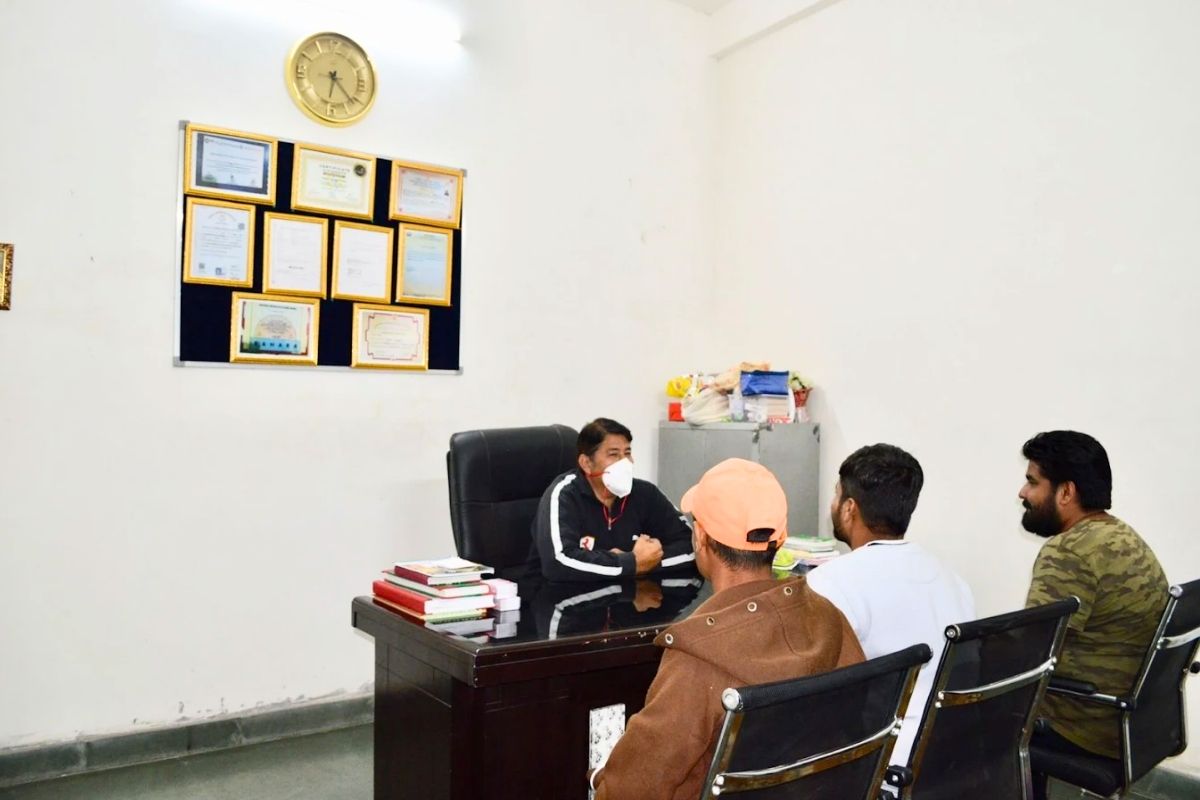Why Family Support Is Crucial in Today's Rehab Journey

Have you ever tried to overcome something complex, like a broken habit, without anyone cheering you on?
Going through addiction recovery is an uphill battle filled with emotional, mental, and physical challenges without your family by your side. Sounds isolating.
The truth is that family support in addiction recovery isn’t just “nice to have.” It’s often the backbone of successful rehabilitation.
You might be wondering why you need family in your de-addiction process.
The Ripple Effect of Addiction on Families

Addiction doesn’t exist in a vacuum. When one person struggles with substance use, the entire family feels the impact. Tension builds. Trust is eroded. Communication breaks down. Even day-to-day life can feel like walking on eggshells.
The role of family in rehabilitation is not uncommon for families to experience guilt, shame, fear, and helplessness while watching their loved one spiral. But acknowledging this pain is the first step toward healing together.Addiction is not just the individual’s issue. It’s a family crisis. And that’s precisely why family involvement in treatment is so vital.
What Happens When Families Step In?
Studies consistently show that people recovering from drug or alcohol addiction have better outcomes when their families, whether biological or chosen, offer positive support. And no, it’s not just about tough love or keeping tabs. It’s about emotional support during rehab, genuine connection, and rebuilding trust.
Let’s check out the role of family in rehabilitation.
1. Emotional Safety Means Stronger Recovery
Recovery can feel lonely. It comes with guilt, withdrawal, and self-doubt. But when a family provides emotional support during rehab, it creates a safe space where the recovering individual feels seen, heard, and understood.
When you know someone’s in your corner no matter what, it changes everything.
2. Accountability Without Judgment
Staying on the recovery path isn’t easy. Cravings happen. Motivation dips. That’s where family support in addiction recovery shines.
Supportive family members can act as accountability partners. They help set boundaries, reinforce goals, and gently steer their loved ones back on track when needed.
3. Shared Understanding Means Less Conflict

When families attend therapy or counselling sessions, they gain insight into addiction’s complexities. It’s no longer “Why don’t you just stop?” but a deeper understanding of the struggle.
This shift fosters patience and empathy, essential ingredients for both addiction recovery and family healing.
4. Keeping the Momentum Going
Whether it’s celebrating 30 days sober or simply showing up for a therapy session, families have the power to highlight progress.
They help rebuild self-esteem, instill hope, and encourage healthier habits. These “little wins” become stepping stones to long-term sobriety, primarily when supported by consistent family involvement in treatment.
5. A Healthier Environment Means Fewer Triggers
A supportive family doesn’t just cheer from the sidelines; they actively shape the home environment.This means reducing stressors, eliminating substances from the house, avoiding enabling behaviours, and learning to recognise potential triggers.
That kind of home? It’s a sanctuary for healing.
6. Long-Term Recovery Needs Long-Term Support
Recovery is a lifelong journey. There are good days. Relapses. New milestones. And through it all, family support in addiction recovery is the thread that helps hold everything together.
Whether it’s a sibling checking in with a phone call, a parent attending support group meetings, or a partner choosing patience over frustration, it all matters.
So, Where Do You Begin?

If you’re someone battling addiction, or you love someone who is, here’s the deal –
- Know that addiction recovery and family can coexist and even thrive when met with compassion and education.
- Understand that families aren’t perfect. There will be tough conversations, boundaries to set, and mistakes along the way.
- But also remember that healing is possible. With the right mindset and support, recovery becomes a shared mission, not a solo struggle.
There’s a reason why community and connection are emphasised in recovery programs around the world. Healing in isolation rarely works. But healing with family support in addiction recovery? That can be life-changing.
Whether you’re a parent, sibling, friend, or chosen family member, your role in someone’s recovery is powerful. You don’t have to be perfect. Just a present.
Is drug or alcohol addiction affecting your family?
It may be time to ask not just what they need to change but how you can walk the path with them.
Let’s build a future where no one has to recover alone.










